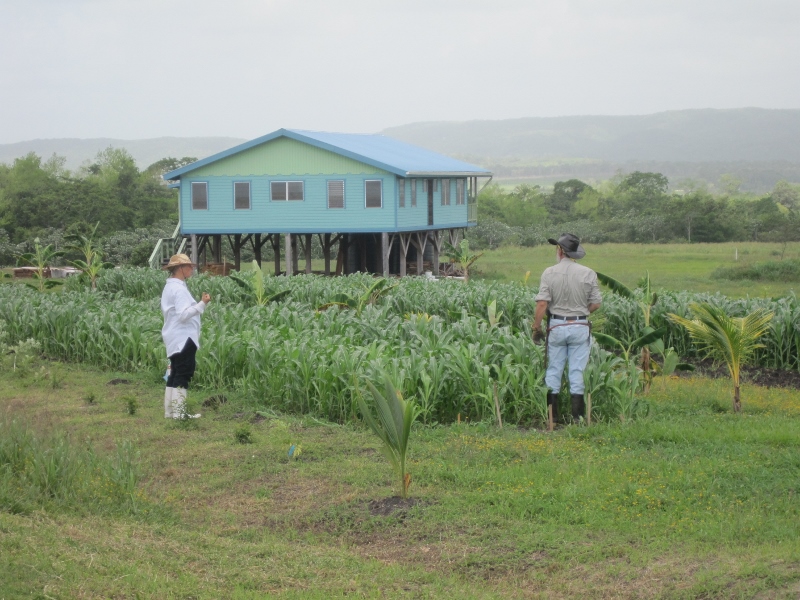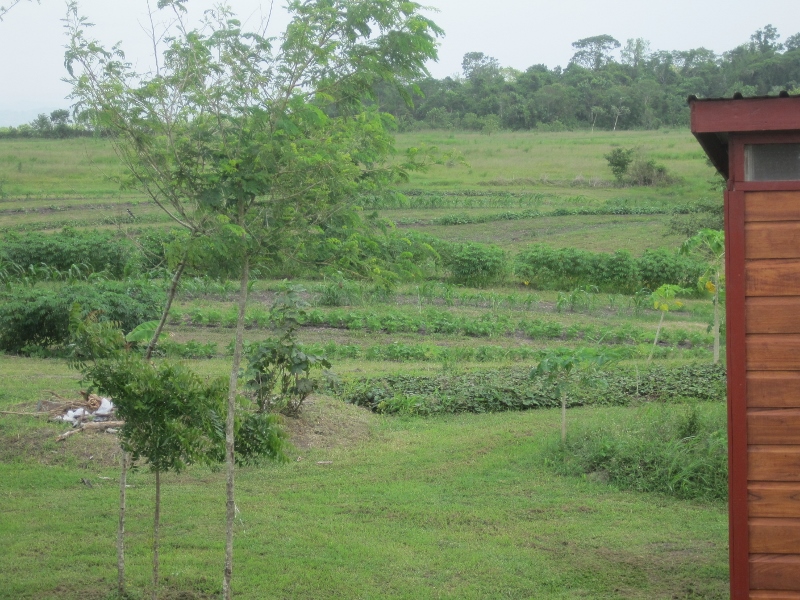ORGANIC AGRICULTURE
and YOU
ORGANIC…What does that really mean?
Having been involved in organic agriculture for many years, I believe that organic" is more than just agriculture, it is a commitment to a lifestyle—one that includes healthier choices for you, your family and the planet.
As often quoted from Hippocrates—the famous Greek physician, known as ‘the father of modern medicine’— "Let your food be your medicine and let your medicine be your food". Decades of research has established a definite link between illness and diet.
The counter-culture of the "back to the land" generation of the 1960s
turned into the organic agriculture industry of the 1970’s until our present
day. But does eating only food grown without synthetic chemicals tell the
whole story?

Why does organic food cost more? Answer, because it is more labor intensive. Is the extra cost worth the extra benefits?
Everyone should ask of themselves the following questions:
Are you in perfect health?
Do you take any man made medicines?
If your answers are "no" and "yes" in that order you would be wise to consider what the underlying cause is before adding more toxins to the mix with so-called "quick-fix" medications. It is important, too, to realize that eating only organic food is not the entire answer to being healthful. We are subjected to chemical toxins in our bath soaps, toothpaste, shampoo, dish-washing liquids, laundry detergents, cleaning agents and cosmetics to name just a few.
Organic, therefore, is a lifestyle to be carried out in every phase of our lives. I urge you to seek out and support those who raise organic food and make household and personal care products by joyfully paying the extra price and learning how to produce food and natural homemade products for yourselves which will pay you back in the long term with health benefits and financial savings.
WEEDS...Are they all harmful?
I have been doing a lot of
gardening lately, and so, weeds have been on my mind as well as in my garden.
As a very small child, I remember crawling in the grass of our small back yard
and being enthralled with the little yellow flowers that bloomed there in the
spring. However, much to my amazement,
no one wanted Dandelions in their grass and much time and energy was spent by
adults prying them up with a two-pronged tool until "weed killer"
came along.
During my infancy and youth, we lived in a suburban neighborhood of modest one and two family homes. The home next to ours was owned by a ninety-six year old lady, Mrs. Ashley and her middle aged, unmarried daughter. I distinctly remember, as a small child, that Mrs. Ashley asked everyone in the neighborhood who she knew, to save the Dandelions for her. With these "weeds", she made soup, tea and even wine. Mrs. Ashley obviously knew something that we did not know.
When I revolted against the medical industry after healing myself of colon/pancreatic cancer with natural methods not taught me in medical school, one of my goals was to learn how to grow my own healthy food without man-made chemicals, while preserving and improving the earth around me. I began to read books and the first book I read was called "Secrets of the Soil" written by Peter Tompkins and Christopher Bird. The first statement that jumped out at me in this book was, "a weed is a plant that you do not know yet".
Many years later, when I was an apprentice to a master organic farmer, I was assigned the lowly job of weeding his large vegetable gardens. During my long hours of toiling with a hoe in my hand my observation showed me that, first of all, the "weeds" had many holes in the leaves from being devoured by insects—much more than the leaves of the vegetables we were growing—and when the weeds had been removed, the insects began to eat our valuable crop. Perhaps the insects knew something that we did not know?
Now we know that many so called weeds are edible and are medicinal plants and at the very least make a good green manure or fertilizer for our gardens if turned under and allowed to rot slowly.
It seems to me that we do not want to get to know people or plants that look different. But, once we take the time to get to know them, we find out that they have much value.
Garden Pests...What do you do about the bugs?
This is the first question new organic minded gardeners tend to ask. The answer is to build soil fertility which gives the plants a natural resistance—healthy plants give off a different frequency than sick ones which attract insects.
I have read with great interest over recent years the controversies between those for and those against the methods of large commercial agriculture versus small family organic farming. While living in Belize, we saw the problem was that no successful role models of organic agriculture existed. My wife, Rose, and I were invited to come to Belize in 2005, to teach natural health and organic agriculture. I am a physician and surgeon with over 25 yrs experience as an organic farmer, orchardist and gardener. We lived in Spanish Lookout five years trying to educate others by growing a small organic garden on top of a hill of white Marl where we rented land. Indeed, this proved to be challenging as we adapted to a different climate and conditions of the soil. The art of gardening is always a learning process as situations continue to change.
In 2010, we moved from Spanish Lookout onto 100+ acres purchased from a local family in Duck Run 2. The land had been under a five year rental to Spanish Lookout farmers using a corn, bean, Milo rotation. When we moved onto the land it was barren except for the residue from a recent bean harvest.
New Life Farm Ltd was founded as a role model for research, teaching and demonstration of small family farming and organic agriculture. We knew we would have to slowly transition the land from previous use. Our many years of experience in N. Arkansas USA were of little value in the tropics nor were our heirloom seeds.

We laid the land fallow one year before our first plantings. We searched for and acquired small amounts of indigenous seed strains of corn, rice, beans, potatoes and other vegetables which we planted as our initial field crops for the purpose of gathering and storing more seed for future plantings. We have had to contend with rebuilding our depleted soils and neutralizing previous chemical residues.
Choosing an organic lifestyle...How can you get started?
Do we have all the answers? By no means. Are we learning every day? Yes....Can land be transitioned to more sustainable agriculture? Yes, but slowly...Do we want to 'feed the world’? No, just teach families how to produce most of their own food in a more healthful and sustainable manner.
Eliminating toxins, first, from your
body and from the foods that you eat will restore your body's natural ability
to prevent illness. Healthful food is more difficult to come
by these days, especially in the aisles at the supermarkets, so unless you take
action to produce your own food—by whatever means possible given your home
situation—you are likely to become and/or remain more susceptible to illness. Our
goal is to test ideas and to see what works in different soils and climatic environments....You
must decide not to take "toxic shortcuts" by using the herbicides and
pesticides that are readily available to you...Instead,
utilize the recipes of proven natural ingredients. Check out how to grow your own food here.
We are starting anew...How about you?